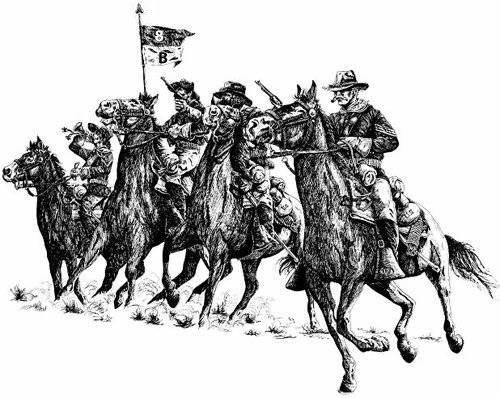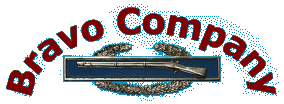|
From ancient times
scholars have pondered over these two interrelated questions – why do men fight
and what is the basis for the special relationship that develops between combat
soldiers in wartime?
There are numerous studies that address these perplexing questions but they tend
to be case studies of a particular conflict, such as World War II and the Iraq
War, and they do not adequately address our unique situation and experiences
during the Vietnam War. In order to find a plausible answer to the question on
why men fought in the Vietnam War, we need to start by examining the factors
that brought these young men to the battlefields of Vietnam.

Why was the Vietnam War different from other wars? Since the end of the draft in
1973, the US Army has had to attract its members and the motivating factors for
sustaining a volunteer force are very different from that required for a
conscripted force. So one important difference with the Vietnam War is that
seventy-five percent of the troopers assigned to Bravo Company were draftees and
most of the junior non-commissioned officers were also draftees. These draftees
were not conscripted for the “duration of hostilities”, as was the case during
the Second World War; instead they had a service obligation in Vietnam that was
limited to a maximum of one year.
Throughout the course of the twentieth century, several generations of Americans
answered the call to fight in foreign lands. With reference to the troopers of
Bravo Company, it is likely that they had some close relative, perhaps a father
or uncle, who had fought in World War II either in Europe or in the Pacific. It
is also possible that some had other relatives, perhaps a grandfather, who
fought in Europe during World War I. The key point here is that there was a
well-established tradition in most families to serve in the military when called
upon, and this tradition was supported by local, state and national
institutions, together with numerous nationwide organizations, like the American
Legion and Veterans of Foreign Wars of the United States.
As stated above, most of the troopers of Bravo Company were draftees who
received a “Greetings! From the President of the United States… You are hereby
ordered to report for induction…” They obeyed this call to serve just as their
relatives had during earlier wars. So it was not just a matter of obeying a
Presidential Order, it was also complying with well-established family
traditions and the norms of society. But an unknown number declined to serve,
especially the so-called “draft dodgers”, who did everything possible to avoid
being sent to Vietnam. There is no way of knowing how many of these draft
dodgers regret their behavior or experience pangs of guilt whenever they hear
the words “Vietnam War”. However with the passage of a few decades, some of
these draft dodgers have now acquired sufficient moral courage to
publicly declare that they regret their earlier decision and if it were possible
to turn the clock back, they would have served in Vietnam. For more information
on this point, see
http://www.skytroopers.org/now_theyre_feeling_guilty.htm
In every war involving the commitment of American forces, we always had many who
volunteered to serve in the armed forces. Like the draftees, these volunteers
were influenced by family members who had served in previous wars and by the
social norms of society. If their relatives had served in peacetime, it is
highly likely that they referred to their time in the military as “the best
years of their life”. There were many other factors that influenced their
decision to volunteer for military service and probably included some of these
motivating factors – patriotism, civic duty, adventure, travel, employment,
education, the wide range of benefits available to military personnel and their
families, and many decided to jump the gun and volunteered instead of waiting
for an official draft notice.
While these were the principal motivating factors that brought these young men
to the Vietnam battlefields, it is important to point out that this involved a
contract with Uncle Sam to serve 365 days in Vietnam and not a single day
longer. This one-year policy also meant that we had a continuous flow of
troopers and leaders who were either arriving or departing from Bravo Company.
The significance of this time limitation was always evident in Bravo Company by
not only the wide range of “short-timer” calendars in use, but also the
bantering reminders by these short-timers that they would soon be heading home.
While these bantering remarks were mostly expressions of happiness, they also
contained a hidden element of sadness because of the approaching end to some
very special relationships.
On the question of why men fight, we have one set of motivating factors that
brought these young men to Vietnam and then an additional set of motivating
factors came into play once they joined their company. On joining Bravo Company,
a trooper became a member of a team and this involved a very special and
treasured relationship that develops between combat soldiers in wartime, often
referred to as “the bonds between soldiers”, “comrades-in-arms” and “the band of
brothers”. The use of “brother” highlights the importance attached to this
special relationship, one equal to that existing between close blood relatives.
The basis for these special relationships included the eligibility requirements
for the Combat Infantry Badge and some other important factors. In essence, it
was a relationship between troopers who were actively engaged in ground combat
with the enemy, and in a situation where they were constantly and collectively
exposed to danger over a long period of time.
It is also important to remember that the Vietnam War was a very different type
of conflict with the focus on guerrilla warfare and small unit operations. This
meant that Bravo Company operated as a self-sufficient fighting unit and there
was no strong feeling of dependency or the existence of special ties with the
other units of our battalion. In fact, our contact with the other companies of
our battalion was sporadic and normally limited to brief encounters when we
relieved each other of a mission to secure a firebase. This was very different
from the situation during the Second World War, where the infantry companies of
a battalion had close and continuous contact with each other during both
offensive and defensive operations. There were many facets to these special
relationships during the Vietnam War and while unit cohesiveness encompassed the
1st Cavalry Division and the 2nd Battalion 8th Cavalry Regiment, the core unit
was Bravo Company. And within Bravo Company, these special relationships were
formed primarily at the squad and platoon level.
Trust formed the cornerstone for these special relationships and here we are
referring to the ultimate form of trust - that of entrusting others with your
life. In combat one has to trust that each member of the team will act to
protect the others from harm. In other words, the members of a team acted as
guardian angels for each other and their golden rule was “not to let your
buddies down”. This unmatched level of trust between team members was always
present and not just during a firefight, but also when patrolling, on guard duty,
on ambush operations and while conducting combat assaults. While trust was the
cornerstone for these special relationships, it also fostered the development of
close friendships between team members and the willingness to take risks and act
bravely to protect your buddies. While countless acts of bravery and
self-sacrifice went unrecorded, the official records of awards and decorations
provide a glimpse of some of these brave acts by both troopers and leaders. For
examples of extraordinary courage and selflessness, see the citations of Medal
of Honor awards to 1st Cavalry Division troopers during the Vietnam War at
http://www.1stcavmedic.com/listcmhcav.html
As outlined above, there were several factors that motivated young men to serve
in Vietnam for the specified period of one year. And what was the principal
factor that motivated the troopers of Bravo Company to fight? There is a broad
consensus among combat troopers that the bottom-line goes something like this:
We were members of a band of brothers who fought to protect each other from
harm.
References:
- Samuel A.Stouffer, The American Soldier: Combat and Its Aftermath, 1949.
- Dr. Leonard Wong et. al., Why Men Fight: Combat Motivation in the Iraq War. U.S. Army War College Research Paper, July 2003.
- Christopher Buckley, Viet Guilt, Esquire Magazine, September 1983.
|




